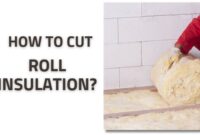Insulating your basement is a great way to enhance the energy efficiency of the house, which can lead to fewer bills. That being said, it is not always recommended to be performed. Read some insights into the topic, including basement ceiling insulation pros and cons, below.
What Kind of Insulation For Basement Ceiling
Before jumping into the benefits and drawbacks of insulating your basement, here are some of the most common material types for basement ceiling insulation:

Fiberglass is arguably the most widely used insulation material. It is mostly manufactured from cullet or recycled crushed glass. It may come in various forms, such as rolls, blankets, batts, or blown-in loose-fill.
- Mineral wool
Also typically referred to as stone wool, this material possesses high density and unidirectional fiber composite. These place the material among the best soundproofing or insulation material. Its compact structure also makes it not easily crumble in comparison to fiberglass.
In general, spray foam insulation is made from polyurethane. Compared to other listed options, it is more costly, but it also boasts high effectiveness.
Foam board is another widely available insulation material, not to mention it offers the benefit of an easy and quick installation process. You can find different types of foam board such as Polyiso (Polyisocyanurate), Extruded Polystyrene (XPS), or Expanded Polystyrene (EPS).
Basement Ceiling Insulation Pros and Cons
After learning about different types of insulation material for basement ceilings, a question arises then: do you need insulation in basement ceilings?
The answer actually depends on the requirement of your household and local building codes.
Naturally, there are pros and cons to this project. Here are some drawbacks and benefits of insulating basement ceiling:
Pros:
- The warmer temperature during colder days: Having your ceiling basement to be insulated helps to prevent heat to escape from this specific area.
- The cooler temperature during warmer days: Conversely, insulating your basement ceiling helps to cool down the whole house during summer as well, which means less work for your air conditioner system.
- Less noise: Ceiling insulation helps to reduce sound from the outside of the basement. It is especially useful if the basement is used for a bedroom or home office.
- More barrier against moisture: Apart from preventing heat from escaping and sound from getting in, insulating your ceiling basement also serves as a moisture barrier. It helps avoid condensing water vapor on a low-temperature surface such as pipes, which can result in growing mold and mildew over time.
Cons:
- Relatively pricey cost: Insulating the ceiling of your basement typically requires more dollars because it is more time and energy consuming than other types of insulation installation.
- Unnecessary in some cases: If you have insulated your basement already, there’s a low chance that additional insulation on the ceiling is needed.
- Possible moisture issue if it isn’t correctly done: Insulating your basement ceiling can result backhandedly if it’s not done properly by creating cracks where water vapor can seep through and result in mold growth.
Cost To Insulate Basement Ceiling
Another consideration to answer your question of whether should basement ceiling be insulated the cost. The most affecting factors to your general budget for this project are the material type used and its density.
The cost of material for basement ceiling insulation in the US ranges between $0.5 to $1.3 per sq ft, with an average of $0.95 per sq ft. Adding the cost of labor results in the total price ranging from $1.2 to $2.6 per sq ft. The cost of a standard project that involves 300 sq ft of space ranges from $355 to $796, with an average of $575.
Now that you have read the basement ceiling insulation pros and cons, material types, and cost estimation, you can get a better assessment of whether you should carry on with the project or not. After all, the most important consideration of all is what you will use the basement space for.


